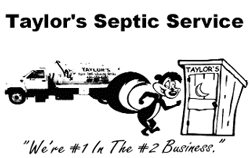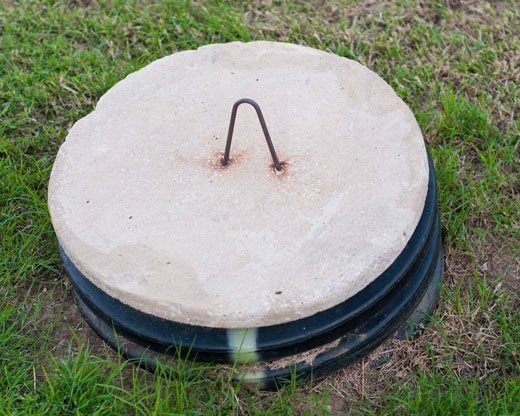Call Us: (434) 352-8350
We Offer Real Estate Septic System Inspections
The law in Virginia now requires an owner of a property with an on-site sewage system to disclose the presence and maintenance requirements to the system to potential buyers. Most lenders and buyers request an inspection and certification for the septic system when buying or selling a property with an on-site Sewage System. They want to ensure that it is functioning correctly and with routine maintenance is expected to continue to work correctly for the foreseeable future.
Are you buying or selling a home? We are certified and licensed to clean and inspect your Septic System. Schedule your inspection today.
Understanding what a “visual” septic inspection is:
(this is what we perceive as a septic professional)
A visual inspection involves carefully inspecting each part of the septic system to check for signs of damage, malfunction, missing components or any other problems.
First, the septic tank must be located, then exposed, lids checked for cracks, the water level and scum level checked, then clean the tank to check for cracks, leaks, missing components (inlet or outlet tees), or root intrusion. Next the distribution box should be located and exposed an evaluated for deterioration, cracks, leaks, sludge, root intrusion and whether the lines are taking water or not. The drain field area should be inspected for wet or soggy areas, unusually lush or green grass or overgrowth of any type over the system (trees, shrubs, etc.). If the system has a pump system, then all the components should be thoroughly checked (risers, pumps & alarms) to insure they are operating correctly. If there are any filters on the system that help to keep solids from entering the drain field they should be checked and cleaned as well.
Most visual inspections can be checked with the naked eye, however some things can not be observed, such as the piping. If the piping needs to be thoroughly inspected, you must use a video camera to look inside the pipes, this will only work for the piping leaving the house to septic tank and then the septic tank to the distribution box (this could possibly show root intrusion, breaks, dips or bellies, broken or cracked pipes). There is no way to thoroughly inspect the drain field lines as there are several types of drain fields (corrugated piping, chambers, ez flow, sand filters, mounds, drips, and so on).
The importance of having a regular inspection will help to keep your septic system healthy and catch potential problems before they become serious and expensive. This will also help to extend the life of your septic system.
What you as a homeowner does is especially important: First know where your septic system is located. Next, know what NOT to put into the system, a rule of thumb is if it can go into the trash, then put it in the trash. The only thing that should be put into the system is human secretions (bile, urine) toilet paper and water. WIPES of NO TYPE should go into the system, as well as grease, oils, paints, foods, trash, medication, etc.
Excessive water use can also cause problems so always check for leaks and try not overloading your system. A well-maintained system helps to protect the groundwater from contamination as well as the ecosystems.
If you notice your drains are slow, the toilets are not flushing, you are experiencing a backup, you have water coming up on the ground or have persistent odors you need to call in the professionals, do not wait maintenance is key.
Remember that neglecting the signs can lead to expensive problems down the road, so stay vigilant, have your system inspected and cleaned on a regular basis. It is highly recommended that conventional septic systems be cleaned every 3 to 5 years, this is based on an average family of 4, the more people in the home the more often you should clean your tank. If you have an alternative system, it must be done annually.
NOTE: If a real estate inspection is being done and a home has sat vacant for any period the results of the drain field area may be inconclusive. We also do not recommend doing any type of dye testing as most systems are designed to take an “X” amount of water per 24-hour period and overloading a system will result in possible seepage. Septic systems are designed based on the number of bedrooms and some homes have had upgrades such as adding bedrooms and when this is done a 3 bedroom septic system is now housing a 4 or 5 bedroom home and the system cannot handle the volume which makes the system inadequate for the home, especially when the system has not been upgraded to meet the usage.
When remodeling or upgrading there should always be a building permit and a health department SAP (safe, adequate & proper) issued to insure everything is to code. Buyer Beware, when in doubt ask questions, demand answers, get inspections and know the laws.
Maintenance, as well as Inspection, is Necessary
Maintenance is essential, and we highly recommend that tanks be pumped and cleaned at least every three to five years. Homeowners need to know how a system works and the do’s and don’ts to what they can and cannot put down a system or over the system.
A Quick Disclaimer
However, there is no way to guarantee the future performance of a septic system. An inspection may not show all the actual present conditions of all or part of the on-site sewage system. The system may be found to be in satisfactory working conditions and not violate any local or state health sanitary codes. The fact that the system appears to be in good working condition is not a warranty or guarantee that the system will continue to function for any given period in the future.
Phone: (434) 352-8350 Appomattox / (434) 846-8350 Lynchburg / (434) 983-6303 Buckingham
Email: taylorsseptic@gmail.com / Address: 407 Wildway Rd, Appomattox, VA 24522-5180 US
License #: Virginia State Certified / AOSS MASTER ALT OPERATOR # 1942001028 / AOSS MASTER CONV OPERATOR # 19420014552 / AOSS MASTER CONV OPERATOR # 1942001433 / AOSS MASTER CONV INSTALLER # 1944001842 / Virginia Class C Contractors License With (SDS) #2705135406 / Virginia Department of Health (VDH) #05-214-101H / D & B: 019767784: Small Business Certified (SWAM) #10431 / REAL ESTATE SEPTIC SYSTEM INSPECTIONS / OPERATIONS AND MAINTENANCE SERVICES FOR ALTERNATIVE SYSTEMS / EVA Certified #E13087

